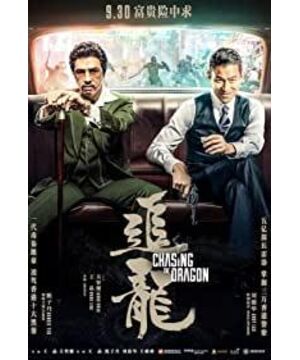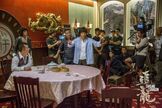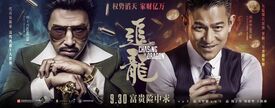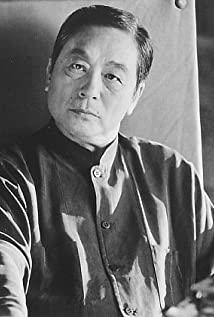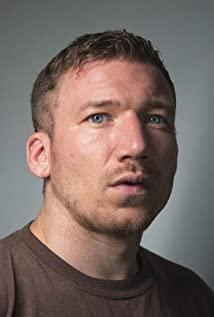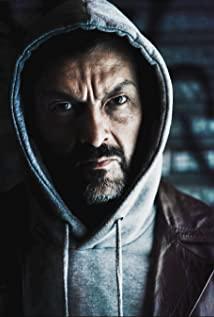Chasing the dragon is a Hong Kong slang term for drug use, especially the act of smoking heroin by heating it with tinfoil. In the 1980s and 1990s, there was a slogan in the anti-drug movement in Hong Kong: "Live a tiger, don't chase a dragon". It can be seen that the term "chasing the dragon" is quite common in the local area. The 2017 gangster movie "Chasing the Dragon" is based on the history of Lai Luo and Lame Hao as the main line, depicting a historical picture of the flourishing of the three major economic black industries in Hong Kong during the British colonial period. Wang Jing once said at the premiere of "Chasing the Dragon" that this is a Hong Kong version of "Once Upon a Time in America". I think he didn't lie, "Chasing the Dragon" is indeed a work full of sincerity, and it is also a landmark work in the history of director Wang Jing. The reasons are as follows: 1. The theme of Chasing the Dragon is based on the background of Hong Kong in the 1960s and 1970s, which perfectly presents a historical and cultural aspect of old Hong Kong. The line "adapted based on real historical events" typed in red letters at the title adds to the gold content of history and makes the content appear more real and heavy. In addition, there are two films, "Five Billion Detectives" and "The Lame Man", and this fusion and reproduction of "Chasing the Dragon" is indeed very pleasing to the audience. 2. The structure of the plot is rigorous and reasonable. Because it is a film that emphasizes history, the plot is against the usual exaggeration and nonsense of Wang's films, which seriously makes people suspect that it was not made by "The King of Bad Movies". Personally, I feel that the only laughing point in the whole play is the scene where the grizzly bear and the doll were fighting each other. Wang Juntang led a group of younger brothers to enter the venue, just like a small seal of "Made by Wang Jing" was secretly stamped, allowing people to really see What is called "six parents do not recognize the pace". The structure of the entire film "Chasing the Dragon" is also rigorous and formal. Especially when Lai Luo and Lai Hao smoked on the rooftop of the Kowloon Walled City twice, they echoed each other, implying that the two went from glory to failure. For the first time, Lai Luo and Lai Hao had just made a blood alliance and formed a golden orchid. The two stood on the top of Kowloon City, facing the rising sun, while puffing clouds and smugly pointing to Hong Kong Island, "The whole Hong Kong is ours!" But when the situation suddenly changed, the two finally joined hands to shoot and kill the British Superintendent Hunter, and once again stood in Kowloon City under the dark night, with faint lights in the distance, and the British police force who had already entered the city. A generation of heroes, only silently lit a cigarette and looked at each other silently. 3. The actors' acting skills are excellent. From the casting of "Chasing the Dragon", we can see the appeal of the great director Wang Jing, and the male stars who can be named in Hong Kong are almost all out. Up to the two leading actors Andy Lau and Donnie Yen, down to the main co-stars Zheng Zeshi, Tang Zhenye, Zeng Jiang, Huang Rihua, and countless other group performances, all of them are online, perfectly performing every one of them. The spirit and flesh of the character. After watching it in 2 hours and 8 minutes, there is no dance at all. The strength and hard work of the actors are indispensable. 4. The national complex is sublimated. As an art for the public, what the director wants to see the most is to arouse the empathy of the broad audience. How to arouse "empathy", family and national spirit, and national spirit are the most suitable trump cards. Hong Kong in the late 1960s and early 1970s, which is the background of "Chasing the Dragon", was the most serious and dark period of corruption and corruption in the British Hong Kong government. It was also the period when gangsters manipulated pornography, gambling and drugs. It is against this backdrop that the film's Lame Howe is portrayed as a national hero against British police brutality. The phrase "this is where we Chinese belong, go back to your UK"! It does have a strong nationalist color, which makes the whole movie up a grade from the spiritual level. But commercial films are just commercial films after all, and all the painstaking efforts are essentially commercial films that cater to the public's tastes. Lai Luo and Lai Hao are actually disgraceful historical figures, a police giant and a gangster drug lord, using Lai Luo and Lai Hao to sensationalize, whether it is brotherhood or national love, it is really far-fetched. It can only be done by director Wang Da, who is used to filming "nonsense", to beautify the national spirit of disregarding the national law and to take revenge for personal revenge, and to beautify an unbearable dark history into a history of prosperity.
View more about Chasing the Dragon reviews


